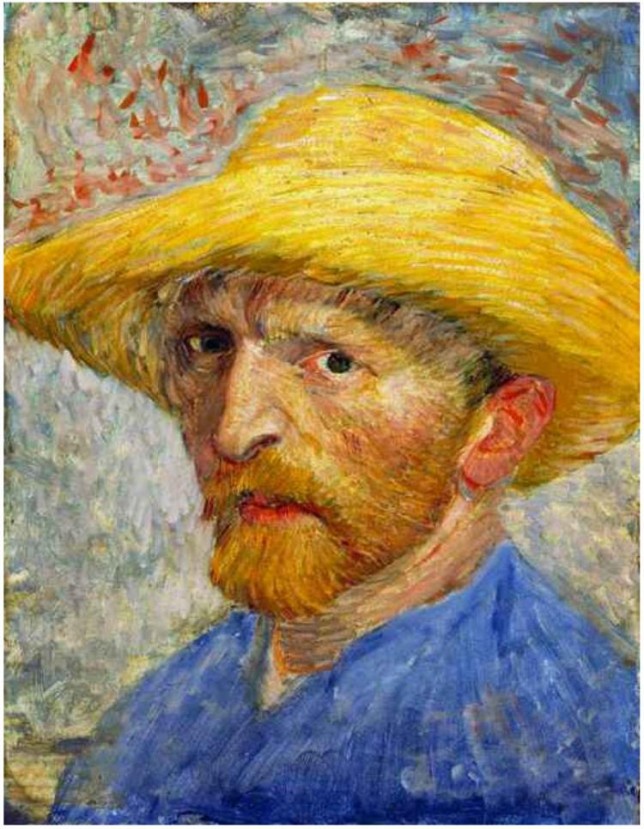Pax Nortona – A Blog by Joel Sax
From the Land of the Lost Blunderbuss
Home - Health - Mental Illness - Bipolar Disorder - Happy Birthday, Vincent! (World Bipolar Day)
Happy Birthday, Vincent! (World Bipolar Day)
Posted on March 30, 2015 in Bipolar Disorder Psycho-bunk Reflections Stigma
The fact is we are painters in real life, and the important thing is to breathe as hard as ever we can breathe. — Vincent Van Gogh
 A few months ago, a writer (a psychologist wouldn’t you know) in Skeptical Inquirer dissed the idea that Vincent Van Gogh had bipolar disorder. She invoked new evidence that suggested that he had not committed suicide, but had been shot by a local boy. Now this writer left out a lot of facts about Van Gogh’s life such as the deep depressions that afflicted him, the ear he cut off to send to a woman who jilted him, and the euphorias that took him to his own heaven. All these are documented in his letters to his brother Theo. These didn’t matter: the psychologist couldn’t stand the thought that Vincent could be capable enough to render his masterpieces and live with bipolar disorder.
A few months ago, a writer (a psychologist wouldn’t you know) in Skeptical Inquirer dissed the idea that Vincent Van Gogh had bipolar disorder. She invoked new evidence that suggested that he had not committed suicide, but had been shot by a local boy. Now this writer left out a lot of facts about Van Gogh’s life such as the deep depressions that afflicted him, the ear he cut off to send to a woman who jilted him, and the euphorias that took him to his own heaven. All these are documented in his letters to his brother Theo. These didn’t matter: the psychologist couldn’t stand the thought that Vincent could be capable enough to render his masterpieces and live with bipolar disorder.
This stigmatization through denial gives us a yet another reason to stand up and show our faces in the world. We are capable, we create beautiful things, we hold down jobs, we engage the world. I had a psychologist once very much like this woman. She was controlling, overbearing, and made me feel that I was a dangerous, abusive person based on some personal confessions about some things that I did long ago. She kept pushing me to get a job and told me that my wife was too kind towards me. She didn’t want me talking about my having been emotionally and physically abused as a child, demanding instead that I completely forgive, trust, and love my parents. She didn’t like that I pointed to famous people who lived with the illness either, marking it as a sign of grandiosity. In the end, because I would not become the person she wanted me to be, she dropped me. I did not trust another psychologist for nearly two years. The one I finally turned to, fortunately, did not put me through this hell even though she knew the same facts. She has helped me to move on and appreciate who I am.
Psychologists can either build us up or rob us of our accomplishments. The same is true of family and friends. Many people come to the support groups that I run complain about how they have been rejected as dangerous psychopaths by people who loved them when they were manic. All the years of knowing them didn’t matter. No one cut off their own ears (though a few practiced self harm) but I can’t help but feeling that they had their faces cut off.
Vincent gave us several faces to know him by. This is a good day to remember that we have faces, too, and to not be ashamed of them.
Super Selfies: Repairing a Personality


